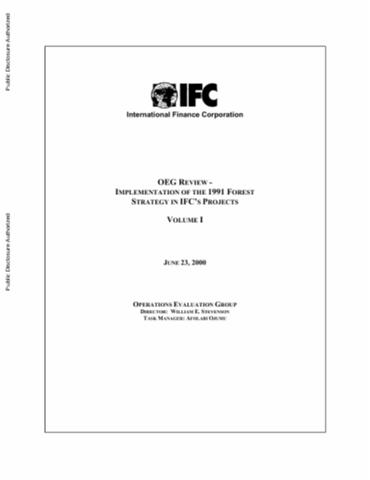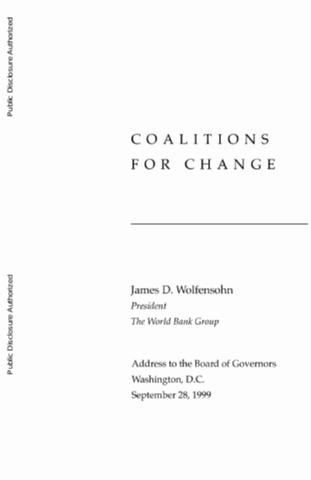The World Bank is a vital source of financial and technical assistance to developing countries around the world. We are not a bank in the ordinary sense but a unique partnership to reduce poverty and support development. The World Bank Group has two ambitious goals: End extreme poverty within a generation and boost shared prosperity.
- To end extreme poverty, the Bank's goal is to decrease the percentage of people living on less than $1.25 a day to no more than 3% by 2030.
- To promote shared prosperity, the goal is to promote income growth of the bottom 40% of the population in each country.
The World Bank Group comprises five institutions managed by their member countries.
The World Bank Group and Land: Working to protect the rights of existing land users and to help secure benefits for smallholder farmers
The World Bank (IBRD and IDA) interacts primarily with governments to increase agricultural productivity, strengthen land tenure policies and improve land governance. More than 90% of the World Bank’s agriculture portfolio focuses on the productivity and access to markets by small holder farmers. Ten percent of our projects focus on the governance of land tenure.
Similarly, investments by the International Finance Corporation (IFC), the World Bank Group’s private sector arm, including those in larger scale enterprises, overwhelmingly support smallholder farmers through improved access to finance, inputs and markets, and as direct suppliers. IFC invests in environmentally and socially sustainable private enterprises in all parts of the value chain (inputs such as irrigation and fertilizers, primary production, processing, transport and storage, traders, and risk management facilities including weather/crop insurance, warehouse financing, etc
For more information, visit the World Bank Group and land and food security (https://www.worldbank.org/en/topic/agriculture/brief/land-and-food-security1
Resources
Displaying 4836 - 4840 of 4907From users to custodians: changing relations between people and the state in forest management in Tanzania
This paper begins by discussing Tanzania's increasing recognition of the need to bring individuals, local groups, and communities into the policy, planning, and management process if woodlands are to remain productive in the coming decades.The article finds that:central control of forests takes management responsibility away from the communities most dependent on them, inevitably resulting in tensionsTanzania has enthusiastically established community-owned and -managed forest reservesthe most successful initiatives involving communities and individuals have been those that moved away from
OEG Review
This study is based on: (i) a review of all the forest-based investments approved by IFC during FY85-98 to identify the changes induced in IFC operations on a ‘before/after strategy’ basis; (ii) a review of selected non-forest infrastructure projects supported by IFC in FY92-98 which potentially have impacts on forests; (iii) a review of selected financial intermediary investments approved in FY92-98 to assess evidence of adherence by the intermediaries and their IFC-funded sub-projects to the requirements of the forest strategy; and (iv) case studies on a sample of 14 forest-based companie
How Land Reform Can Contribute to Economic Growth and Poverty Reduction: Empirical Evidence from International and Zimbabwean Experience
Examines international evidence on the relationship between asset ownership and growth and the impact of redistributive land reform, plus evidence of the impact of land reform in Zimbabwe. Asks why it appears that resettled farmers are among the poorest in the population. Concludes that asset redistribution can be a viable strategy to enhance growth, that the performance of resettled farmers in Zimbabwe is better than is conventionally believed, and that if a land reform programme is well designed, it can have a large impact on equity as well as productivity.
An ecological and historical perspective on agricultural development in Southeast Asia
Looks at location, natural resources, and different policies toward the elite's preemption of unused land shaped the historical development of different agrarian structures across Southeast Asia, conditioning agricultural growth performance until today.Aims to give a broad perspective on the process by which different agrarian structures developed in Indonesia, the Philippines and Thailand, along different historical paths under different ecological conditions.
Coalitions for Change
World Bank Group President, James Wolfensohn addressed the Board of Governors. In the past year the Bank launched a new initiative—the Comprehensive Development Framework (CDF). The aim was to bring the social and the structural aspects of development together with the macroeconomic and the financial so as to establish a much more balanced and effective approach. The Bank will work with the broad development community—the United Nations, the European Union, bilaterals, regional development banks, civil society, and the private sector—to build genuine partnerships.









